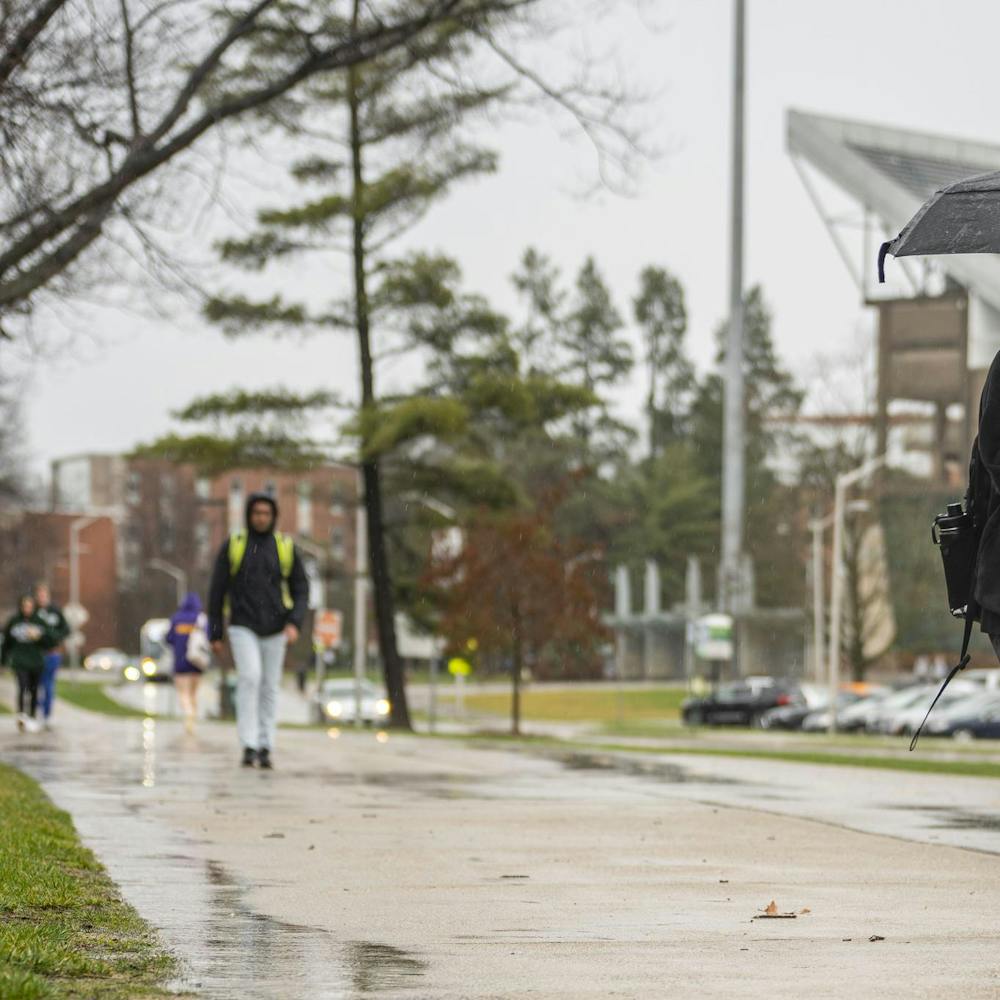The U.S. Senate might vote tonight on whether to repeal the 17-year-old “Don’t Ask, Don’t Tell” policy that bars gay service members from disclosing their sexuality, a staffer for Sen. Carl Levin, D-Mich., said Wednesday.
The staffer said Sen. Majority Leader Harry Reid, D-Nevada, has indicated he will attempt to bring the bill before the Senate sometime late this afternoon or evening.
Four pieces of legislation before the Senate that are not related to DADT are scheduled for votes at about 4 p.m. The defense spending bill to which the DADT repeal is attached could be brought up soon after those votes, Levin’s staffer said.
If not, the vote could come sometime later in the evening.
Members of the Senate Armed Service Committee, which Levin chairs, voted in May to attach language that would repeal DADT to a defense spending authorization bill.
The first attempt to pass the legislation in September failed because the Senate’s leadership could not garner the 60 votes needed to defeat a Republican filibuster. A filibuster is a legislative tactic used to lock proposed legislation in debate, disallowing it from being brought to a vote.
Levin’s staffer said if the defense spending bill is brought up tonight, it will mark the second attempt at repealing the policy.
Update 5:36 p.m.
Reid announced to the Senate this afternoon that he hopes to bring the defense spending bill to which DADT is attached before the Senate sometime late this evening.
Several pieces of legislation were scheduled to be voted on prior to the spending bill, including a law that would put undocumented students on the path to citizenship.
Under the Development, Relief and Education for Alien Minors, or DREAM, Act, child immigrants brought illegally by their illegal alien parents to the U.S. would be granted legal status if they attended college or served in the U.S. military.
The DREAM Act has undergone many changes since it first was introduced in 2001 by U.S. Sen. Dick Durbin, D-Illinois. The most recent version differs greatly from prior versions in that the undocumented students would not be eligible for federal loans, grants or state-funded tuition money.
Durbin said during remarks today that it would take 13 years total for students to reach permanent, legal resident status under the act.
“In the name of compassion and justice, let’s give these young people a chance,” Durbin said.
The act is on the Senate’s agenda, but cannot be taken up until the U.S. House of Representatives acts on the legislation.
Reid said the House is expected to vote on the DREAM Act later this evening.
The Congressional Budget Office, or CBO, has estimated the DREAM Act would shave $1.4 billion off the federal budget deficit.
Senate Republicans have been critical of such estimates, saying the CBO based its estimates on fluid factors.
The CBO, for example, said the $1.4 billion is made possible in part by students covered under the act getting jobs after completing college.
Sen. Jeff Sessions, R-Alabama, said Wednesday the CBO failed to note, among other things, that there is a lack of jobs for Americans of legal status in general.
Support student media!
Please consider donating to The State News and help fund the future of journalism.
“There is no job surplus today,” Sessions said. “Indeed, there is a surplus of laborers who cannot find employment.”
Update 5:51 p.m.
The House has begun debate on the DREAM Act.
Update 8:23 p.m.
The Senate has adjourned for the day, choosing not to wait for the House to vote on the DREAM Act.
Representatives still are debating the act.
The Senate’s adjourning means the earliest the chamber will take up the DREAM Act and the DADT repeal is Thursday.
Various media outlets have reported the DADT repeal legislation will not be taken up until Senate Democrats garner two more votes to open debate on the topic.
The defense spending bill containing the repeal otherwise will be filibustered by Republicans, reports said.
Update 8:36 p.m.
The House has begun voting on whether to pass the DREAM Act. The vote is scheduled for 15 minutes.
Legislators in both the House and Senate mostly have debated along party lines, with Democrats for the DREAM Act and Republicans against.
But some Republican legislators, such as Rep. Ileana Ros-Lehtinen, R-Florida, voiced their support for the legislation during debate throughout the day.
Update 9:02 p.m.
The House has approved the DREAM Act by a vote of 216-198. Voting mostly was along party lines.
Eight Republicans broke from the rest of the party to vote in favor of the legislation. Thirty-eight Democrats broke party lines to vote against the act.
The bill now moves to the Senate, which could take it up as early as Thursday.
Keep checking statenews.com for more on this story.
Discussion
Share and discuss “House passes DREAM Act, Senate postpones 'Don't Ask, Don't Tell' vote” on social media.






